A. Underline the correct option.
1 You need a hammer / hammer to fix that.
2 It’s a beautiful country / the beautiful country.
3 The Amur leopard / Amur leopard is one of the most endangered / most endangered animals in the world / in world.
4 The Diwali / Diwali is a Hindu celebration in October or November / in the October or the November.
5 Use water / the water in the bottle.
6 My aunt and uncle love a sun / the sun! They stay in UK / in the UK in summer and visit friends in Australia / in the Australia in winter.
7 It’s an old car / the old car, but I love it and it’s only car / the only car I have!
8 Stephen Hawking wrote A Brief History of the Time / Time.
Answers
2 a beautiful country
3 The Amur leopard; the most endangered; in the world
4 Diwali; in October or November
5 the water
6 the sun; in the UK; in Australia
7 an old car; the only car
8 Time
B. Complete the sentences with the nouns from the box. Add a, an or the if necessary.
|
aunt government hour lunch Mondays safe water Romans Canada |
1 I had ……lunch…… before you came.
2 884 million people in the world do not have enough ……………………………… .
3 He runs for ……………………………… every day.
4 ……………………………… were in Britain for over 350 years.
5 She visits on ……………………………… .
6 My sister’s baby was born this morning, so I’m now ……………………………… .
7 ……………………………… has introduced some new laws on factory waste.
8 My friends want to go to a summer school in ……………………………… .
Answers
2 safe water 3 an hour 4 The Romans
5 Mondays 6 an aunt 7 The government
8 Canada
C. Make sentences by putting the words in the correct order. Add a, an or the if necessary.
1 smile / got / She’s / nice.
She’s got a nice smile.
2 Dr Hammond / good / me / gave / advice
……………………………………………….. .
3 country / like / you / living / Do / in
………………………………………………..?
4 house / What / untidy
………………………………………………..!
5 We / school / planets / about / at / are / learning
……………………………………………….. .
6 moon / Earth / round / Why / go / does
………………………………………………..?
7 This / runs / electricity / car / on
……………………………………………….. .
8 bed / on / your / Put / coat
……………………………………………….. .
Answers
2 Dr Hammond gave me good advice.
3 Do you like living in the country?
4 What an untidy house!
5 We are learning about the planets at school.
6 Why does the moon go round the Earth?
7 This car runs on electricity.
8 Put your coat on the bed.
D. Write full versions of these text messages, including a and the where necessary.

Hi. Have you got the tickets?
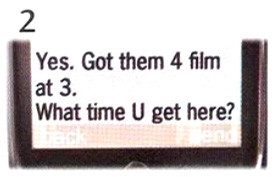
…………………………………
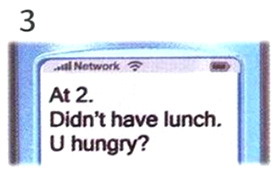
…………………………………
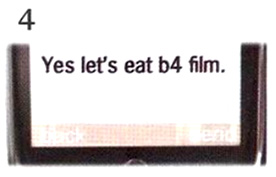
…………………………………
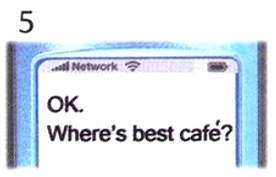
…………………………………
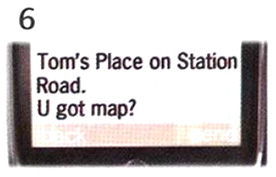
…………………………………
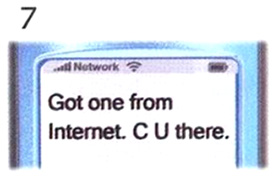
…………………………………
Answers
2 Yes. I’ve got them for the film at 3. What time will / do you get here?
3 At 2.00. I didn’t have lunch. Are you hungry?
4 Yes, let’s eat before the film.
5 OK. Where’s the best café?
6 Tom’s Place on Station Road. Have you got a map?
7 I’ve got / I got one from the Internet. See you there.
E. Complete this text about famous codes with a, the or – (= no article). Sometimes more than one answer is possible.
In 1897, Edward Elgar, 1…a…… British composer, sent 2………… message in code to 3………… 23-year-old friend, Miss Dora Penny. 4………… message is still 5………… mystery.
6………… famous author, Edgar Allan Poe, often included 7………… codes in 8………… his poems and 9………… writing. In 1839, 10………… Poe asked 11………… readers of 12………… magazine to send him 13………… messages in code. 14………… 150 years later, two of 15………… codes were still not solved.
The first of 16………… these codes was finally solved in 1992. Around this time, 17………… Williams College in 18………… USA offered $2,500 to 19………… person who could solve 20………… final code. 21………… website was also set up. 22………… competition attracted 23………… worldwide interest. 24………… engineer, Gil Broza, finally solved it in 25………… October 2000.
Answers
2 a 3 a 4 The 5 a 6 A / The 7 –
8 – 9 – 10 – 11 – / the 12 a 13 –
14 – 15 the 16 – 17 – 18 the
19 the 20 the 21 A 22 The 23 –
24 An 25 –
F. Rewrite each sentence so that it has a similar meaning, using the word in brackets.
1 She studies at university. (a)
She’s a university student.
2 That boy has a famous father. (with)
…………………………………………..
3 He’s been working with young people for ten years. (the)
…………………………………………..
4 The journey was terrible. (What)
…………………………………………..
5 Her house is lovely – it’s by the sea. (lives)
…………………………………………..
6 The potatoes cost £1 for one kilo. (a)
…………………………………………..
7 No one in my class is taller than me. (I’m)
…………………………………………..
8 He speaks very quietly. (voice)
…………………………………………..
Answers
2 That’s the boy with a famous father.
3 He’s been working with the young for ten years.
4 What a terrible journey!
5 She lives in a lovely house by the sea.
6 The potatoes cost £1 a kilo.
7 I’m the tallest in my class.
8 He speaks in / has got / has a very quiet voice.
G. In your notebook, write answers to the questions, using a, an, the or no article in each answer. Answer five questions truthfully, but write an untrue answer for the other there.
1 What’s your favourite food? My favourite food is salad.
2 How often do you brush your teeth?
3 What colour and type of car would you like to have?
4 What does your mum do?
5 Where do you live?
6 Which do you prefer: mountains, city or sea?
7 There would you like to go on holiday next?
8 What’s your favourite time of year?
Show your answers to a friend or to your teacher.
Can they guess which answers are not true?
Answers
your own answers
H. Circle the correct option.
1 Mt Kilimanjaro is …………… highest mountain in Africa.
a the b a c –
2 I watched …………… interesting programme yesterday.
a a b the c an
3 We eat in a restaurant once …………… month.
a a b an c the
4 Have you called …………… police?
a – b the c a
5 I love …………… pasta for …………… dinner.
a the / the b a / a c – / –
Answers
1 a 2 c 3 a 4 b 5 c
